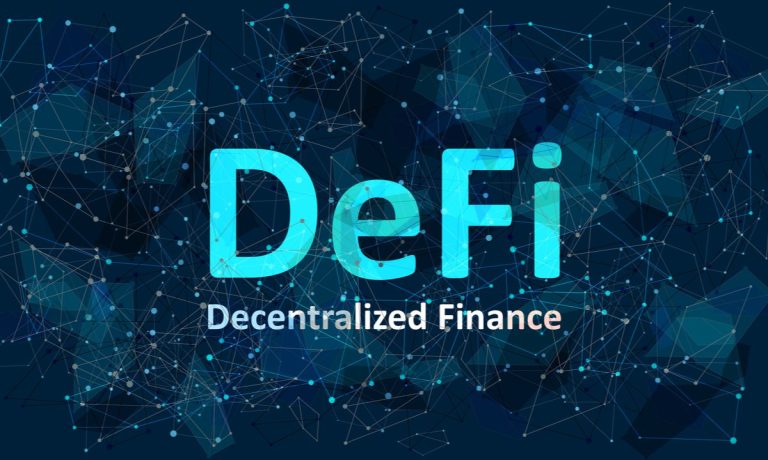DeFi’s Risks ‘Quickly Evolving’ to Threaten Traditional Markets, Securities Regulators Warn

Warning that the risks decentralized finance (DeFi) pose are quickly evolving as the crypto-based markets grow to the point where they are “cloning” mainstream financial markets, an international group of securities regulators announced a push to create a coordinated global response.
The March 24 report by the International Organization of Securities Commissions (IOSCO) revealed the establishment of a new task force to help members “take timely and coordinated policy action to appropriately address the risks arising from this fast-growing area,” according to its chairman, Tuang Lee Lim, the assistant managing director for capital markets of the Monetary Authority of Singapore (MAS). The organization says its members include 95% of the world’s securities regulators.
Read more: India’s Prime Minister Calls for Global Action on Crypto
Growing Concern
While calls for coordinated regulation of crypto in general is growing, the IOSCO report is the latest in a growing chorus for coordinated regulation of DeFi in particular.
While acknowledging the potential benefits and “novel” financial products and services that decentralized finance, or DeFi, brings to investors, IOSCO’s report found that most “mirror” those provided by conventional financial markets but with far weaker regulation and greater risks.
The most common DeFi projects are decentralized exchanges, or DEXs, for trading cryptocurrencies and derivatives, lending/borrowing platforms, and liquidity pool and blockchain staking.
See also: PYMNTS DeFi Series: What is Yield Farming and Liquidity Mining?
IOSCO’s findings also went further than a December report by the Bank for International Settlement (BIS) that concluded the supposedly peer-to-peer, decentralized marketplaces often have de facto central authorities — project creators, venture firms and other institutional investors with outsize control of the cryptocurrency governance tokens used to vote on all management issues.
Learn more: Bank for International Settlements Calls DeFi’s Decentralization an Illusion
This can lead to a variety of conflicts of interest, notably but not exclusively by centralized exchanges, IOSCO said.
Concentration of Power
DeFi projects are run by — or in early stages plan to be run by — smart contract-controlled decentralized autonomous organizations (DAOs). All decisions, from code upgrades to project details like setting interest rates — are made by majority votes run on a one-token, one-vote method.
Read also: PYMNTS DeFi Series: Unpacking DeFi and DAO
The hole in this governance theory is that most decisions — even on hugely important issues — are made by a tiny number of voters who are actually paying attention when votes are called. These tend to be owners of large blocks of tokens.
And as much of the information about and discussion about these votes — to say nothing of their existence — take place on poorly known and sometimes private social networks such as Discord, there is often a great deal of information asymmetry as insiders and big investors talk among themselves.
Taken together, these factors show that “in reality,” many DAOs are “in fact centralized,” the report argues. And with such a small voter base, the potential for conflicts of interest grows.
Beyond that, many smaller investors keep their tokens in the custody of large, centralized exchanges which can — although rarely do — vote their clients’ tokens.
See: DeFi’s Achilles’ Heel on Display: Vote Could Take $100M in Crypto from an Investor
Another problem is staking, in which blockchain validators put up stakes — essentially bonds for good behavior — that allow them to write new blocks of transactions onto a blockchain in exchange for newly minted token rewards. Analogous to bitcoin-style mining without the environmental problems, validators are randomly selected to mint new blocks in proportion to the size of their stakes.
Also read: PYMNTS DeFi Series: What is Staking?
So, many validators encourage token holders to delegate — lend — them their DeFi tokens in exchange for a cut of the rewards. This gives them the power to vote those tokens.
In addition, many large centralized exchanges provide users “a pathway into DeFi protocols and smart contracts,” IOSCO said, noting that many offer clients the ability to invest in lending and staking projects with the click of a button, trusting the exchanges to handle all of the details.
“As centralized crypto-asset trading platforms offer a full range of services, including trading, lending and borrowing, and custody of crypto-assets, they are subject to significant risks including potential conflicts of interest, economic exposures, and concentration risks relating to crypto-asset control through custody, leverage, and trading risks,” the report said.
There are less subtle means of influencing DeFi governance votes, such as Bribe Protocol, which pays governance token holders to pool assets whose voting power can be borrowed for a fee. Its motto is, “Where DAO token holders get paid to govern.”